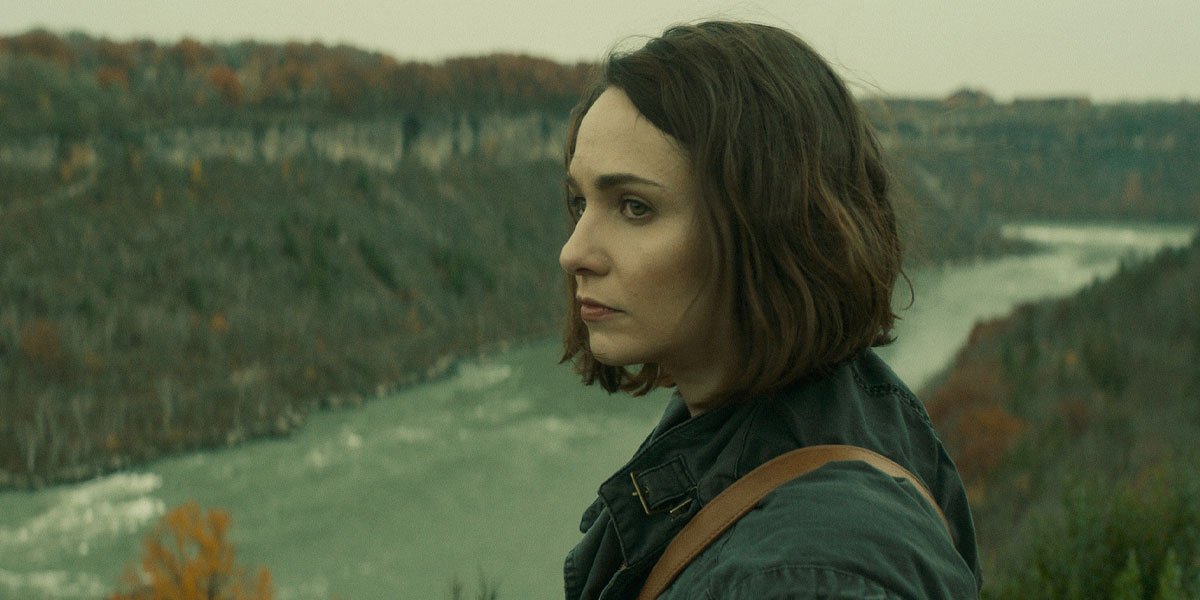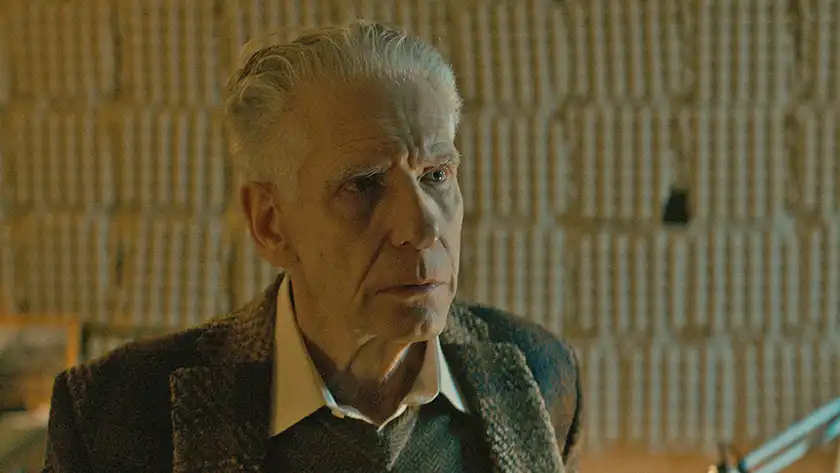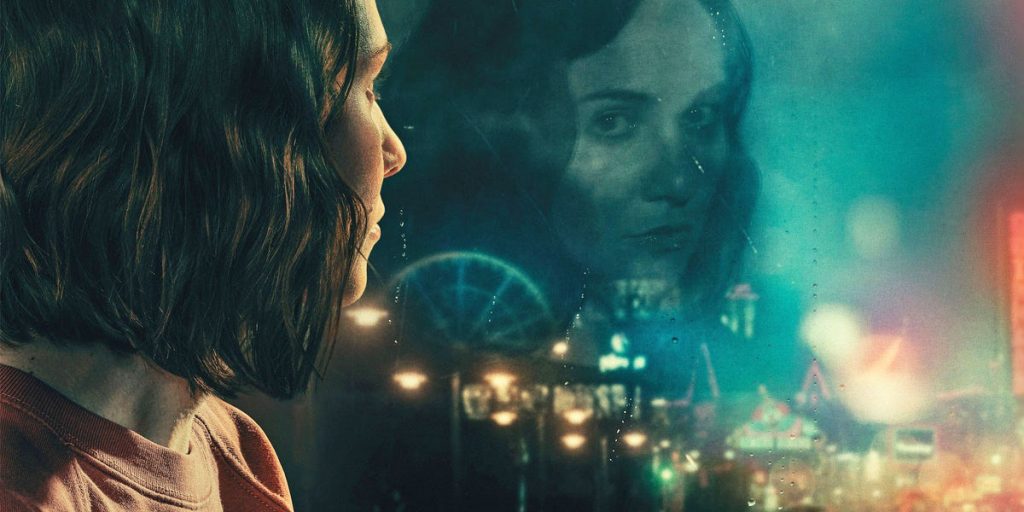In an interview with Disappearance at Clifton Hill ’s writer-director Albert Shin, we learn the secrets behind the film’s suspenseful story and hear how Shin set out to celebrate this curious city.
Disappearance at Clifton Hill’s titular setting feels like a character of its own in this chilling chronicle, so it’s no surprise that writer-director Albert Shin holds the town in such high regard. As Tuppence Middleton’s Abby covers every nook and cranny of Clifton Hill in her stalwart search for the truth behind an alarming abduction she witnessed as a child, she stumbles upon an even mightier mythology of mysteries and interacts with countless cryptic citizens who compel and confuse, simultaneously, immersing both herself and audiences in this expansive, enigmatic environment. In a dense drama like this, it’s clear that the developments on display originate from the mind of a man who possesses both a familiarity with and a fascination for these secretive surroundings, and Shin certainly isn’t shy about these sentiments. In our interview, we were able to speak with Shin about his influences and inspirations for the film, and we received additional insight into his intentions with the piece as well.
Developing Disappearance at Clifton Hill: Influences and Inspirations
How did experiences from your youth influence the plot of Disappearance at Clifton Hill, and how much of the movie is directly lifted from real events?
The whole prologue of the film – and the kidnapping that our hero Abby witnesses as a child – is almost directly lifted from my own experience, right down to where we shot it, which is in the exact same place it happened in my life. And like in the film, my family also owned a motel in the shadows of Clifton Hill, which is the kitschy tourist district in Niagara Falls. However, the journey Abby goes on and the rabbit hole she descends is a work of pure imagination.
While watching Disappearance at Clifton Hill, I noticed shades of other iconic neo-noirs in the film’s narrative – namely, the works of David Lynch (such as Mulholland Drive and Twin Peaks). Were you ever trying to pay homage to any specific films or filmmakers in particular? Did any other auteurs inspire you throughout development?
I was certainly influenced, consciously or subconsciously, by the works of many filmmakers, David Lynch being one of them, since I’m a big fan of his work. But the films I directly referenced before going into this film were Polanski’s Chinatown and Bong Joon-Ho’s Memories of a Murder. Not for any specific material to pay homage to, but more as aspirational material.

 loudandclearreviews.com
loudandclearreviews.comThe Making of The Film: Struggles and Surprises
In what ways did the making of Disappearance at Clifton Hill differ from your work on your first two features, Point Traverse and In Her Place? How did Disappearance at Clifton Hill test you as an artist?
The films that I’ve made up until this point have wildly spanned the genre spectrum. For instance, In Her Place is a Korean language chamber drama about secret adoptions and motherhood and is a universe away from Disappearance at Clifton Hill. So, I’m actively trying not to repeat myself as a filmmaker. And one of the results of jumping genres and styles each time out is that you can’t rely on any sort-of muscle memory or bag of tricks. You’re jumping into the unknown each time and coming to every new project from a place of fear. I like working from that place.
I appreciated how audiences were able to feel out this wicked world from a female perspective (through Tuppence Middleton’s Abby), as it made everyone else’s disbelief sting just a bit sharper. Especially nowadays, it feels terribly timely to watch a woman’s anguish and anxiety be so readily rejected. How important was it to you to tell this tale with a female lead?
I’m so glad you picked up on this, since it was an essential element in the conception of the film that almost nobody asks me about. The film is certainly not about people’s propensity to not believe women, but it also is about that. It shades the journey that Abby goes on in a way that would just register differently if our hero was a man. Also, it was important to me to make Abby a complex, damaged and singular character without sexualizing her. This film isn’t about that. Her journey isn’t tied to a man, she isn’t a woman scorned, she doesn’t use her body to get what she wants, or any of these other stock devices that so many films employ when there’s a female hero.
It’s been mentioned that you initially faced resistance from the Clifton Hill business improvement association when it came to securing shooting locations for the production. What were their worries, and how were you able to assuage their fears?
Niagara Falls is a tourist town and the powers that be are very conscious of controlling the narrative of their town. And anything that could be seen as showcasing a nefarious or dangerous aspect of the city runs counter to the “Honeymoon Capital of the World.” But cinema has the unique ability to mythologize and world-build, and my intention was to make Niagara Falls more mysterious and alluring in the ways that movies are uniquely suited for. This was my love letter to Niagara Falls, and in my own way, I was trying to promote the city as a unique and exciting place. But the Clifton Hill BIA wasn’t convinced, and they actually barred us from shooting in many of the essential locations that the script was specifically written for. So, production was much harder than it needed to be, but by employing all sorts of movie magic, making some tough compromises, and re-conceptualizing things, we got it done.
What was it like to work with a genre giant like David Cronenberg? How did you go about securing his involvement in Disappearance at Clifton Hill?
It was a dream come true. We were having a hard time casting this particular role, and at the last minute, David’s name came up. It was such a perfect idea, and I didn’t want to get my hopes up because it was David Cronenberg. But, out of desperation, we sent him the script, and to my shock and elation, he got back to us immediately saying he was interested! And working with him was as amazing as you’d hope in your wildest dreams. It was as surreal as he was sublime.

Disappearance at Clifton Hill‘s Release and Albert Shin’s Future Projects
This is the second time you were able to premiere a film at the Toronto International Film Festival. How did your experience at the event in 2019 compare to your experience with In Her Place in 2014?
With In Her Place, nobody knew anything about the movie, so there were no expectations, and it took people by surprise. Honestly, it took me by surprise – pleasantly, of course – how people responded so strongly to it. But this time around, I didn’t have that luxury, as there was quite a bit more anticipation and expectation. And because it was such a different kind of film than In Her Place, I was nervous about how people would react. It was interesting to subvert expectations a little, and we had a great premiere and festival.
Can you tell us anything about any future projects you’re currently working on?
I’m currently in post-production on a film I produced, directed by my friend and collaborator Igor Drljaca. It’s a Sarajevo-set teenage romance steeped in the specific cultural and economic dynamics of that region. It’s called Tabija, and we’re hoping to ready it for festivals as soon we figure out that landscape post-COVID. And as for my next directorial effort, I’m working on a project that I hope we can shoot next year in the spring, but everything is tenuous because of the pandemic. Again, it’s a very different kind of film than anything I’ve done before, so hopefully we can make that happen again.
Disappearance at Clifton Hill will be available on Digital Download from July 20, and on DVD from August 3. Read our review of the film Disappearance at Clifton Hill.

